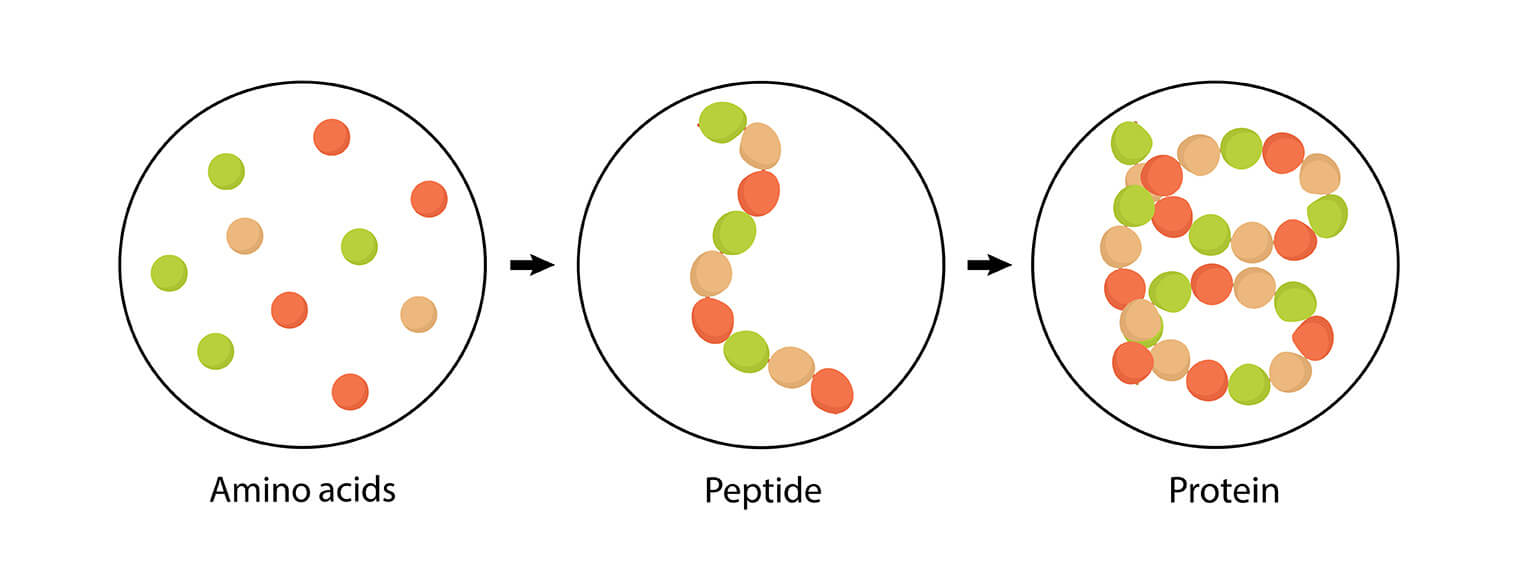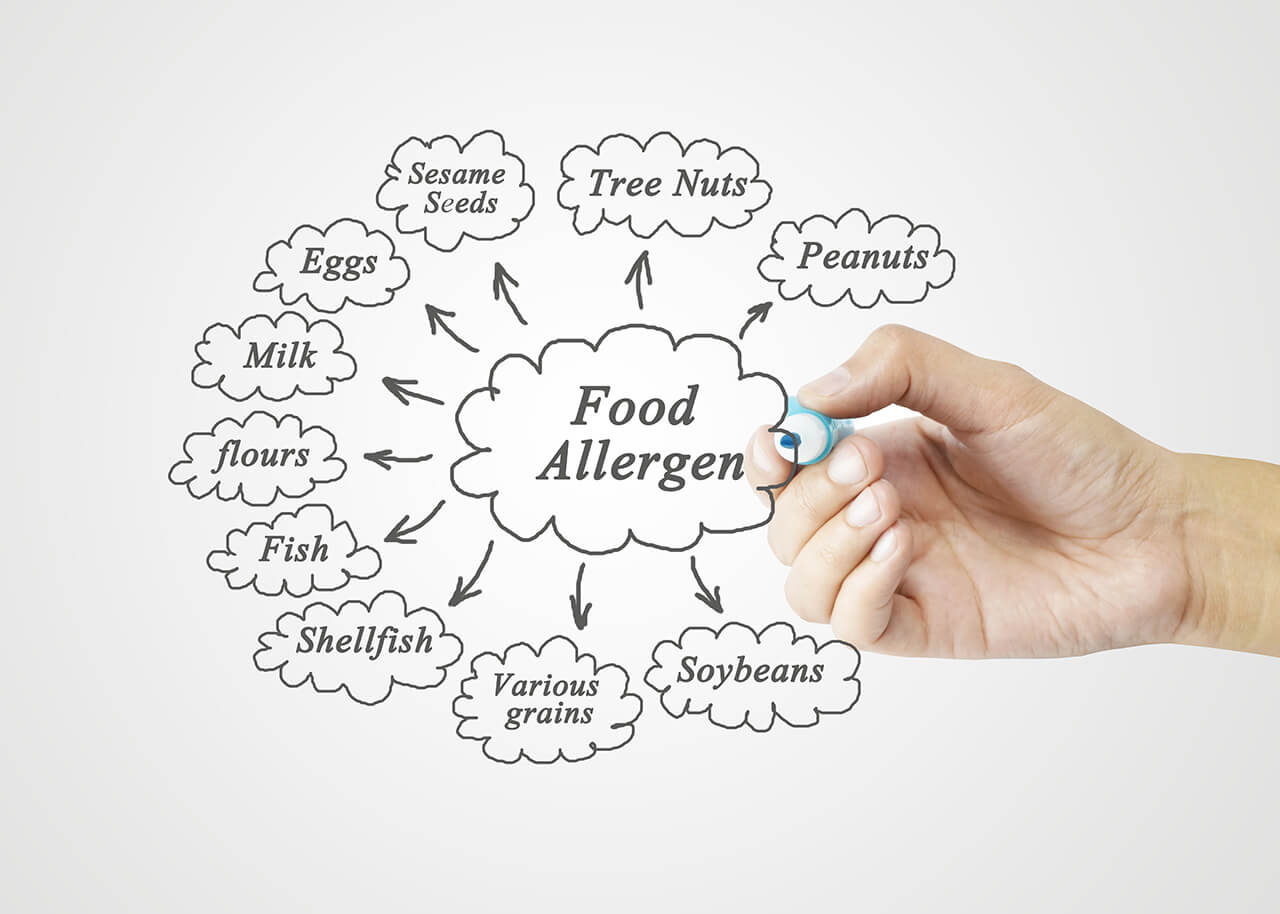Disclosure
Commercial support for this program has been provided by Michael Foods.
Looking to sign up for our newsletter? Click here
Sign up for NewsletterSauces & Dressings
Baked Goods
Pastas
Sports Nutrition
Pet Foods
Learn about our team’s extensive capabilities and resources.
Get to Know UsEggs
Potatoes
French Toast
See the Story From Our Farm To Your Table

Michael Foods Online CE Course (1 hour CE)
Michael Foods, Inc. will maintain verification of your attendance. Please fill out the following information. Upon completion of this course, a certificate of completion will be available for download.
Commercial support for this program has been provided by Michael Foods.

Eggs are a staple of cuisines around the world, one of our most convenient and economical protein sources. In addition, they hold a place as a “comfort food” ingredient, as explained by Wilson (2020) and evidenced by Google Trends data during the early stages of the pandemic. Wilson speaks to finding “foods that make you feel special” and evoke comforting memories. She says that eggs in a variety of preparation styles fit the bill.
As you will discover in this course, eggs are an excellent source of many of the nutrients that are essential for human health. Yet eggs in the diet have also been a source of concern since the American Heart Association first recommended limiting egg intake in 1968. They were “long-vilified for their high cholesterol content by well-meaning doctors and scientists researching heart disease,” says Harvard School of Public Health (2022). Scientific thinking, while not conclusive, has evolved significantly since that time. Explains Consultant 360 (2022), “Eggs have done a complete turnaround over the past 50 years, from a food on the ‘Do Not Eat’ list to one of the best healthy food choices.”
Egg consumption has indeed shifted over the years. USDA (2019) says that in 1945, average consumption in the U.S. was 404 eggs per person. It dropped to 229 in 1991 and then rose to 245 in 2011. The American Egg Board (2022) reports that it rose further to 280.5 in 2021. “Consumers are slowly adding eggs back into their diets,” says Consultant 360, but “given their history, consumers still have questions regarding the safety of eggs.”
This course will present current knowledge about egg nutrition, including nutrients and other components, impact on health, and the state of dietary guidance about consuming eggs. While there are many varieties of eggs available for human consumption, this course focuses on the most common, chicken eggs.

Upon completion of this course, participants will be able to:

Eggs are “the lowest-cost animal sources for proteins, vitamin A, iron, vitamin B12, riboflavin, choline, and the second lowest-cost source for zinc and calcium” and provide “well-balanced nutrients for infants and adults,” observe Rehault-Godbert et al. (2019). While proteins are distributed between egg whites and yolks, they note that “lipids, vitamins, and minerals are essentially concentrated in egg yolk.”
One large chicken egg contains 71.5 calories, 6.3g protein, and 1.56g of saturated fat (USDA, 2022). It is also a source of thiamin, riboflavin, niacin, vitamin B6, folate, vitamin A, vitamin D, copper, iron, phosphorous, potassium, zinc, calcium, magnesium, manganese, and selenium, among other nutrients (USDA). “Egg yolk is one of the few naturally occurring food sources of vitamin D,” according to Myers and Ruxton (June 7, 2023). As such, they can be useful in meeting the vitamin D shortfall that occurs in months with less sunshine in the Northern hemisphere, helping people maintain vitamin D status, they say.
“Eating two eggs per day covers 10-30% of vitamin requirements for humans,” with the only exception being vitamin C, note Rehault-Godbert et al. (2019), and an egg contains all essential trace elements.
A large egg also contains 186mg cholesterol, along with essential fatty acids, primarily linoleic acid, a polyunsaturated omega-6 fatty acid (Rehault-Godbert et al., 2019). They note that the exact fatty acid profile of an egg is dependent upon the hen’s diet. Additives in the hen’s diet will affect other nutrients, as well. For example, eggs farmed conventionally may be higher in carotenoids, the compounds that create golden hues for the yolk, due to hens’ dietary additives such as corn, marigold flower, and paprika extract; this can have a positive impact on human health, according to Rehault-Godbert et al.
Both whites and yolks of eggs are “highly concentrated in proteins,” with whites being slightly higher than yolks (Rehault-Godbert et al., 2019). Egg protein is often cited as the “gold standard” for protein quality (Zelman, 2022). Egg protein has a high biological value due to the alignment of amino acid profiles with human needs and high bioavailability. The protein in egg whites has an amino acid score of 100, the highest possible (Matsuoka and Sugano, 2022). The protein of egg whites has about the same number of branched-chain amino acids as milk protein and more sulfur-containing amino acids than other protein sources. Egg white protein is utilized in the body even better than whey protein (Matsuoka and Sugano, 2022). In research with animals, consuming egg white protein has been shown to increase lean body mass and decrease body fat (Matsuoka and Sugano, 2022).
One large egg contains 147mg of choline (USDA, 2022), and eggs are the primary source of dietary choline in U.S. diets (Rehault-Godbert et al., 2019). Choline plays a role in cellular maintenance and growth through all stages of life, report Rehault-Godbert et al., as well as in neurotransmission, brain development, and bone integrity. Choline is essential for healthy brain development, which makes eggs a favorable food to include in the diets of pregnant or lactating women, as well as infants and toddlers (Papanikolaou and Fulgoni 2021).
Eggs are also a source of pantothenic acid, which supports “synthesis of steroid hormones, vitamin D and neurotransmitters, energy metabolism, mental performance, reduction in tiredness and fatigue” (Myers and Ruxton). In addition, they are high in iodine, which is essential for thyroid function, as well as for energy metabolism, normal skin, a healthy nervous system, and cognitive function, they note.
One large egg contains 252µg of lutein and zeaxanthin, two types of carotenoids, which are “important for eye health and may lower the risks of age-related eye diseases” (Ball, 2022 These two carotenoids are also associated with positive findings related to blood sugar control—a lower blood glucose level two hours after a meal and a lower fasting insulin level (Mott et al., Jan. 19, 2023). In addition, egg yolk provides a lipid (fat-based) matrix, which increases the bioavailability of phytonutrients, such as lutein and zeaxanthin, according to Myers and Ruxton.

Past dietary guidance in the U.S. as well as other countries limited egg consumption to three eggs per week, note Myers and Ruxton in a review article (June 7, 2023). The primary rationale was that the cholesterol content of eggs might be deleterious to heart health. Over the past two decades, scientific thinking has shifted, they say, as we understand that dietary saturated fat is what counts. They note that the U.S. was slower than some other countries to drop the egg-limiting advice, retaining the guidance until 2015.
In light of such changes, Myers and Ruxton point out that public opinion has sometimes lagged behind the “changing scientific evidence in recent decades”. What’s more, “This has led to confusion about the benefits or harms of consuming eggs, particularly in relation to heart health,” they say.
“Although eggs contain cholesterol, they do not necessarily increase serum cholesterol levels,” according to Matsuoka and Sugano (2022). Rehault-Godbert et al. (2019) explain that blood cholesterol is more influenced by saturated fatty acid intake rather than dietary cholesterol—specifically, the saturated fats myristic and palmitic acid. Some individuals (estimated as 15-25% of the population) appear to experience a rise in blood cholesterol levels in response to eating eggs; they are called hyper-responders (Rehault-Godbert et al., 2019). This is a good reason to individualize dietary advice, as addressed by the guidelines of the American Heart Association (below).
The relationship between egg consumption and cardiovascular risk has been an intensive area of research for many years. Based on a large body of research, Harvard School of Public Health (2022) concludes that dietary cholesterol intake is “only weakly related” to serum cholesterol levels. They say this is why the Dietary Guidelines for Americans removed the recommendation to limit dietary cholesterol in 2015. They describe eggs as a “moderate-fat” food, with mostly monounsaturated and polyunsaturated forms of fatty acids. As compared with dietary cholesterol, intake of saturated fat and trans fat seems to have a much greater effect on serum cholesterol, they explain.
Djousse et al. (2021) investigated relationships between egg consumption and both type 2 diabetes and coronary heart disease. These relationships are meaningful because one in 20 Americans has type 2 diabetes, which in turn “is associated with a two- to three-fold increased risk of cardiovascular events including atrial fibrillation, heart failure, coronary heart disease (CHD), and total mortality.” They also note that some of the past data linking egg consumption with cardiovascular risk appeared to limit the risk to individuals with type 2 diabetes, not all individuals consuming eggs.
Myers and Ruxton (June 7, 2023) disagree, saying, “The hypothesis that cholesterol in eggs influences serum lipids in people with type 2 diabetes, hence increasing their risk of cardiovascular disease, is incongruous with the observation that type 2 diabetes is associated with reduced cholesterol absorption in the gut and increased synthesis in the liver.”
Furthermore, overall diet quality and egg preparation methods are considerations that are not always factored in, they note. Papanikolaou and Fulgoni (2021) made the same point in analyzing overall patterns of diets that may contain eggs. Harvard School of Public Health (2022) explains, “You need to pay attention to the ‘trimmings’ that come with your eggs. To your cardiovascular system, scrambled eggs, salsa, and a 100% whole wheat English muffin is a far different meal than scrambled eggs with cheese, sausages, home fries and white toast.”
In their research, Djousse et al. tapped into existing research cohorts comprising more than 100,000 people, ages 25-72, looking at egg consumption data from food frequency questionnaires and diet histories, adjusting for overall diet quality and other risk factors. Their conclusion: There was no overall association between egg consumption and incidence of cardiovascular disease. However, among older adults consuming 5-6 eggs per week, there was an elevated risk.

Some research points to the idea that certain components in eggs may lower serum cholesterol levels. Phospholipids found in egg yolks, for example, have been shown to reduce absorption of dietary cholesterol (Matsuoka and Sugano, 2022). Other research has shown that consuming egg white protein reduced serum cholesterol levels among college students who had mild or borderline hypercholesterolemia (Matsuoka and Sugano, 2022).
Science Daily (2022) reports on research that measured egg metabolites in blood. Among people with moderate egg consumption, researchers found higher levels of apolipoprotein A-1, which is a building block of HDL or “good” cholesterol. HDL can “help clear cholesterol from the blood vessels and thereby protect against blockages that can lead to heart attacks and stroke,” they report. They also say, “Participants who ate fewer eggs had lower levels of beneficial metabolites and higher levels of harmful ones in their blood, compared to those who ate eggs more regularly.” The researchers concluded that “eating a moderate amount of eggs can help protect against heart disease.”
Eggs are also “a great source of heart-healthy nutrients like potassium, folate, and B vitamins,” according to Ball (2022), a registered dietitian who notes that consuming up to two eggs per day may actually improve heart health. Ball also suggests moderation.

The American Heart Association, American College of Cardiology, and Dietary Guidelines have pulled back on past recommendations to limit dietary intake of cholesterol; they have chosen not to issue explicit guidance because of “inconsistencies in the evidence base and the inherent difficulty in conducting and interpreting studies to isolate the independent effect of dietary cholesterol on cardiovascular disease risk” (Carson et al., 2020). They offer these recommendations:

Eggs are nutrient-dense foods. With high protein and moderate fat content, they can serve a valuable role in the diet for increasing satiety and “promoting weight loss of healthy weight management,” suggests Consultant 360 (2022). The source reviews research indicating that eggs chosen in place of high-carbohydrate foods at breakfast reduce sensations of hunger and are associated with reduction in body mass index and weight circumference. Eating eggs at breakfast has also been shown to reduce plasma levels of ghrelin, a.k.a., the “hunger hormone” that signals the body to eat. At the same time, research has shown that replacing bread products with eggs for breakfast did not have any negative impact on blood lipids (Consultant 360).
Muscle mass: For those who aim to increase muscle mass, eggs can play an important role because they are composed of 12.5% high-quality protein, primarily albumin (Santos et al., 2021). How egg consumption impact muscle mass was the subject of investigation by Santos et al., who note that this line of research is fairly new. They explore the effects of using whole eggs versus egg whites among young men engaged in resistance training. Overall, they found no difference between the two options; both egg whites and whole eggs resulted in increased muscle mass. The researchers concluded that whole eggs are an appropriate protein source for building muscle mass.
They also noted that egg yolks contain “possible anabolic properties,” meaning compounds that stimulate growth of muscle. Thus, they consider that egg yolk may have some benefit to other populations “such as women, older adults, and individuals with muscle-wasting diseases”—a topic they recommend for further study. The anabolic compounds noted include phosphatidic acid, a phospholipid that has shown some promise in promoting muscle fiber synthesis; omega-3 fatty acids; cholesterol; and vitamin D. These merit further study, conclude the researchers.

Djousse et al. (2021) found an association between consuming 2 or more eggs per week and the risk of developing type 2 diabetes, as measured by a fasting glucose level at or above 126 mg/Dl and AIC hemoglobin at or above 6.5%. This higher risk was “more apparent,” they note, in people who had lower overall diet quality.
At the same time, there is evidence that liberal egg consumption may have protective effects against high blood sugar, high blood pressure, and metabolic syndrome.
Mayo Clinic (2022) defines metabolic syndrome as “a cluster of conditions that occur together, increasing your risk of heart disease, stroke and type 2 diabetes. These conditions include increased blood pressure, high blood sugar, excess body fat around the waist, and abnormal cholesterol or triglyceride levels.” It is also called “insulin resistance syndrome” (NIH, 2022). One in three adults in the U.S. has metabolic syndrome (NIH, 2022). Metabolic syndrome is marked by inflammation in the body, and Santos et al. (2021) point out that the intake of whole eggs is associated with reductions in biomarkers for inflammation, e.g., C-reactive protein, among people with metabolic syndrome.
After conducting a meta-analysis of 20 studies exploring egg consumption and metabolic syndrome, Ding and Zhang (2022) found a significant association between lower egg consumption and a higher risk of metabolic syndrome. In other words, egg consumption would be encouraged to reduce the risk of metabolic syndrome. Similarly, a review of more than 300,000 people found that “higher egg consumption was associated with a significant 8% reduction in risk of metabolic syndrome” (Myers and Ruxton, June 7, 2023).
Recent research by Mott et al. followed more than 5,000 offspring of the original Framingham Heart Study to assess the effect of egg intake on fasting glucose levels, blood pressure, and diabetes. What they found was that eating five or more eggs per week was associated with lower fasting blood sugar. Furthermore, they found that higher intakes of eggs “led to lower risks of developing impaired fasting glucose or type 2 diabetes,” as well as lower risk of developing high blood pressure”. They noted that “The beneficial effects of egg consumption were stronger in combination with other healthy dietary patterns.” For example, they found a stronger positive effect on blood sugar among people eating eggs and also eating high-fiber diets, fish, and whole grains.
The authors acknowledge, “Concerns about egg consumption and diabetes have existed for a long time, although the results of previous studies of eggs and glucose-related outcomes have been inconsistent.” They explain that two meta-analysis studies in the U.S. have connected egg consumption to a type 2 diabetes risk, while “non-U.S. studies found no such association”. There could be variations in overall dietary patterns and/or lifestyle among these study populations, they speculate. "In some cultures, eggs have been linked with less healthy eating patterns (e.g., more red meat and fewer whole grains or fruits and vegetables),” they point out. It can be challenging to isolate the effects of egg consumption without looking at the overall dietary patterns, including intake of fiber, B vitamins, and antioxidant vitamins, they say.
In the Mott et al. research, people who ate five or more eggs per week also had a 30% lower chance of developing high blood pressure. People who ate more dairy, fish, fiber, fruits, and non-starchy vegetables in conjunction with five or more eggs per week had a 25-41% lower risk of developing high blood pressure, they reported.

Beyond nutrients alone, eggs contain a number of interesting compounds that have biological activity, explain Rehault-Godbert et al. (2019).
There are actually 150 distinct proteins in egg white, they note. The best-known protein, ovalbumin, makes up about half of egg protein. Some of the proteins in eggs may not be fully digested, meaning they do not break down entirely into individual amino acids. Instead, they may enter the body as peptides, molecules of two or more amino acids. These may be bioactive. For example, lysozyme, a naturally occurring enzyme in egg whites, has antibacterial properties and is used as an anti-infectious agent in pharmaceuticals and in food preservation (Rehault-Godbert et al., 2019).
Chicken eggs also contain a number of antioxidants, they add. Some laboratory research suggests that certain peptides from egg yolks may have an anti-inflammatory effect. In addition, lysozyme and other egg peptides appear to inhibit growth of tumors, according to laboratory studies on experimental tumors. Rehault-Godbert et al. say that our understanding of potential anti-cancer activity is still limited, and they recommend further investigation.
Lysozyme is also “a promising agent for treatment of inflammatory bowel disease,” they note. This is somewhat speculative right now, because the research is happening in vitro (i.e., in the lab, not inside the human body). Also, some peptides from eggs show promise as antihypertensive agents. Ingesting these peptides has reduced blood pressure in animal studies (Rehault-Godbert et al., 2019).
Clearly, the potential of bioactive compounds in eggs is an interesting area for further research. Matsuoka and Sugano (2022) suggest that we need more human studies, a greater understanding of how bioactive ingredients in eggs work, and more research into applications for food and pharmaceuticals.

Whites-only entrees are sometimes promoted as a “healthy fare” on menus, observes Laurence (2022). They are a good source of lean protein, says Vanessa Rissetto, RD, who is quoted in Laurence’s article. However, “besides lean protein, egg whites don’t have much nutritional value; all of that is found in the yolk,” she says. In the article, both she and Theresa Shank, RD suggest several reasons for choosing whole eggs, which provide:
Shank also notes that the anti-inflammatory effects of eggs are useful in keeping blood sugar levels in check and preventing high blood cholesterol levels, an inflammatory process. With the exception of anyone who has a “genetic predisposition” leading to problems with fat metabolism, she concludes that eggs are beneficial for heart health.

Eggs are among the most common food allergens, notes the American College of Allergy Asthma and Immunology (ACAAI) (2019). In an egg allergy, the immune system reacts to proteins in eggs and mounts a defense against the perceived invader. Shortly after eating eggs, sensitive individuals may experience skin rash, hives, or eczema; wheezing or difficulty breathing; runny nose or sneezing; red or watery eyes; stomach pain, nausea, vomiting, or diarrhea; or, less commonly, anaphylaxis, a severe, potentially life-threatening reaction (ACAAI, 2019).
As a common allergen, eggs or egg ingredients are required to be identified on the labels of packaged foods in the U.S., per the Food Allergen Labeling and Consumer Protection Act of 2004. “Anyone diagnosed with an allergy to either egg whites or egg yolks should avoid eggs altogether; it is not possible to completely separate the white from the yolk,” advises AAIC.
Up to 2% of children may be allergic to eggs, says AAIC, but 70% of them outgrow the allergy by age 16. It is important for nutrition professionals advising clients about egg intake to be aware of allergy-related conditions. At the same time, professional advice about introducing eggs to infants has changed, Myers and Ruxton (June 7, 2023) point out. It has now been determined that “early introduction of allergenic foods may lower risk of food allergy in children,” they say; authoritative recommendations have been revised; and they encourage health professionals to share this information.

Eating eggs as part of a meal can improve satiety, according to Myers and Ruxton (June 7, 2023). This “could translate into lower energy intakes,” they add. Reviewing nine research studies on this topic, they noted a number of results in one or more studies examining the effects of meals containing eggs. For some, but not all studies, these included:
Do these findings affect weight management? Only one of the studies cited attempted to measure this outcome. The study involved individuals who had type 2 diabetes or metabolic syndrome. There was no significant difference in weight loss between a group eating eggs and a group who was not eating eggs, the research found.
Following up on questions about whether eggs could be inflammatory for people who have type 2 diabetes, though, the study found “no changes to glycemic, lipid, oxidative or inflammatory markers”.

Increasingly, experts are considering nutrition and dietary choices in the broader aspect of sustainability. For example, the Academy of Nutrition and Dietetics theme for National Nutrition Month in 2024 was "Beyond the Table," which they said is meant, in part, to address “the farm-to-fork aspect of nutrition, from food production and distribution to navigating grocery stores and farmers markets” (Academy of Nutrition and Dietetics, accessed Feb. 26, 2024).
On a global scale, health officials are pointing to the ways in which nutrition-related guidance affects the well-being not only of individuals, but of the world population as a whole, for now and into the future. The Food and Agriculture Organization of the United Nations defines sustainable diets as “diets with low environmental impacts which contribute to food and nutrition security and to healthy life for present and future generations” (accessed Feb. 26, 2024).
Another way to think of the concept is this: “The environmental sustainability of diets adds an extra dimension to diet quality,” according to Biesbroek et al. (June 27, 2023). One area of focus is how food choices affect greenhouse gas emissions (GHGE), which can be considered alongside the nutrition and health benefits of any given food choice, they suggest. Overall, they say that plant foods have the lowest GHGE, while meats have the highest. On a matrix ranking nutritional benefits with environmental impacts, they rank eggs as having “high” nutritional benefits with only “moderate” environmental impact. (For comparison, red and processed meats rank as having “moderate” nutritional benefits and “high” environmental impact.)
Local land and water use, preservation of biodiversity, and other factors weigh in as experts consider sustainability, say Biesbroek et al. The assessment can be examined in a socioeconomic and geographic context. This means that sustainable diet choices may not be entirely uniform across the globe.
Zeroing in on eggs, Mason (Sept. 2023) conducted a review comparing GHGEs and land and water use, comparing “the impacts of eggs with those of other animal and plant proteins”. Her conclusion was that “eggs are responsible for less carbon, land and water use than other animal proteins, particularly beef, and only slightly more than most plant proteins.” From a practical standpoint, the convenience, affordability, and nutrient contributions of eggs make eggs a fit for healthy, sustainable diets, she said.

Eggs are listed as a “nutrient-dense” food in the Dietary Guidelines for Americans (USDA, 2020). Nutrient-dense foods are those that “provide vitamins, minerals, and other health-promoting components and have little added sugars, saturated fat, and sodium” and are recommended cornerstones of a healthful diet (USDA, 2020). “Protein foods, including lean meats, poultry, and eggs; seafood; beans, peas, and lentils; and nuts, seeds, and soy products” are listed as “core elements that make up a healthy dietary pattern” (USDA, 2020). The Guidelines also recommend eggs for pregnant women and young children as a source of choline.
The Dietary Guidelines also recommend limiting saturated fat intake to 10% of total calories. They note that in an average American diet, eggs account for 3% of total saturated fat intake.
It is interesting to consider egg consumption in the context of broader dietary patterns. Papanikolaou and Fulgoni (2021) note that “eggs are nutrient-dense foods when prepared with little or no added solid fats, sugars, or sodium.” People who eat eggs fall into one of eight eating patterns, per National Health and Nutrition Examination (NHANES) data, they note, and “cardiovascular disease risk factors can be influenced by other food groups consumed with eggs (e.g., fast foods).”
In conducting dietary analysis focusing on clusters of food choices, these researchers found that people who eat eggs had higher intakes of many essential nutrients. As compared with people who do not eat eggs, they found that fewer egg-eaters had insufficient intakes of a variety of essential nutrients, most notably choline. Only 4.3% of non egg-eaters were meeting the Adequate Intake (AI) standard for choline, while 24.4% of egg-eaters were meeting it. They concluded, “eggs can help to reduce the shortfall gaps in choline intake,” especially for children.

As summed up by Jessica Ball, MS, RD (2022), “Eggs are an affordable and super-nutritious protein and can provide some health benefits if you enjoy them every day.” They provide very high-quality protein, a strong array of vitamins and minerals, and the essential nutrient, choline. Egg yolk is one of the few naturally occurring food sources of vitamin D. Eggs also contain bioactive components whose properties are under investigation today.
Egg consumption may increase satiety, according to some research. From a practical standpoint, the convenience, affordability, and nutrient contributions of eggs make eggs a fit for healthy, sustainable diets.
Current guidelines call for introduction of eggs into infants’ diets. Those who are allergic to eggs need to avoid them. For others, though, “Evidence from high-quality studies suggests they have a positive or neutral impact on health markers and do not pose a risk when eaten regularly as part of a balanced diet,” conclude Myers and Ruxton (June 7, 2023)..
For the majority of people, research supports a number of health benefits related to egg consumption, including neurological and brain health, eye health, muscle mass, modulation of metabolic syndrome, and perhaps even protection against diabetes, high blood pressure, and heart disease.
Academy of Nutrition and Dietetics. (accessed Feb. 26, 2024). National Nutrition Month®. https://www.eatright.org/national-nutrition-month
American College of Allergy Asthma and Immunology (ACAAI) (Mar 21, 2019). Egg.
American Egg Board (2022). Industry Data.
Ball, J, MS, RD (Apr 15, 2022). What Happens to Your Body When You Eat Eggs Every Day. Eatingwell.com.
Biesbroek, S. et al. (June 27, 2023). Toward healthy and sustainable diets for the 21st century: Importance of sociocultural and economic considerations. Proc Natl Acad Sci U S A.
Carson, JAS et al (2020). Dietary Cholesterol and Cardiovascular Risk: A Science Advisory from the American Heart Association. Circulation.
Consultant 360 (accessed Jul 30, 2022). Why Eggs Have Become the Latest Heart-Healthy Food.
Ding, J and Zhang, Y (Mar 23, 2022). Relationship between Egg Consumption and Metabolic Syndrome. A Meta-Analysis of Observational Studies. The Journal of Nutrition, Health, and Aging.
Djousse, L et al (May 2021). Egg Consumption, Overall Diet Quality, and Risk of Type 2 Diabetes and Coronary Heart Disease: A Pooling Project of US Prospective Cohorts. Clin. Nutr.
Food and Agriculture Organization of the United Nations. (accessed Feb. 26, 2024). Dietary Guidelines and Sustainability. https://www.fao.org/
Harvard School of Public Health (2022). The Nutrition Source – Eggs.
Laurence, E (Feb. 21, 2022). Are Egg Whites Healthier Than Whole Eggs? Registered Dietitians Give the Final Verdict. Parade.
Mason, P. (Sept. 2023). The importance of eggs in an environmentally sustainable diet. Nutr Bull.
NIH (May 18, 2022). What Is Metabolic Syndrome?
Matsuoka, R. and M. Sugano (Aug 2022). Health Functions of Egg Protein. Foods.
Mayo Clinic (accessed Aug 4, 2022). Metabolic Syndrome.
Mott, M. et al. (Jan. 18, 2023). Egg Intake Is Associated with Lower Risks of Impaired Fasting Glucose and High Blood Pressure in Framingham Offspring Study Adults. Nutrients.
Myers, M. and Ruxton, C. (June 7, 2023). Eggs: Healthy or Risky? A Review of Evidence from High Quality Studies on Hen’s Eggs. Nutrients.
Papanikolaou, Y and VL Fulgoni III (Nov 16, 2021). Patterns of Egg Consumption Can Help Contribute to Nutrient Recommendations and are Associated with Diet Quality and Shortfall Nutrient Intakes. Nutrients.
Rehault-Godbert, S et al (Mar 22, 2019). The Golden Egg: Nutritional Value, Bioactivities, and Emerging Benefits for Human Health. Nutrients.
Santos, HO et al (Sep 9, 2021). The Effect of Whole Egg Intake on Muscle Mass: Are the Yolk and Its Nutrients Important? International Journal of Sport Nutrition and Exercise Metabolism.
Science Daily (May 24, 2022). How Eating Eggs Can Boost Heart Health.
USDA (2020). Dietary Guidelines for Americans 2020-2025.
USDA (accessed Aug 22, 2022). Food Data Central.
USDA (2019). How Many Eggs Do Americans Eat Each Year?
Wilson, B (Jun 11, 2020). The Comfort of Eggs in a Time of Stress. Wall Street Journal.
Zelman, K, MPH, RD, LD (accessed Aug. 22, 2022). Good Eggs: For Nutrition, They're Hard to Beat. WebMD.
Select the correct answer for each question.
1. The protein in egg whites has an amino acid score of ___ .
Select the correct answer for each question.
2. In US diets eggs are the primary source of this dietary nutrient.
Select the correct answer for each question.
3. The relationship of dietary cholesterol intake to serum cholesterol levels is _____ .
Select the correct answer for each question.
4. This hormone is also known as the “hunger hormone”.
Course complete!
Your Score: out of 4 correct.
You did it! Click the button below to download your certificate of completion for this course. Keep it for your records. To make it easy on you, we have made the certificate fillable.
Download CertificateDid you like the course you completed? Do you have any feedback or suggestions for future courses? We can’t wait to review your feedback!
Complete Course EvaluationIf you would like to submit your evaluation and comments to the Commission on Dietetic Registration, you may do so at QualityCPE@eatright.org.